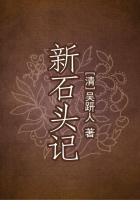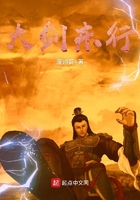(1)Fragment #1 --Scholiast on Apollonius Rhodius, Arg. iii. 1086:
That Deucalion was the son of Prometheus and Pronoea, Hesiod states in the first "Catalogue", as also that Hellen was the son of Deucalion and Pyrrha.
Fragment #2 --
Ioannes Lydus (2), de Mens. i. 13:
They came to call those who followed local manners Latins, but those who followed Hellenic customs Greeks, after the brothers Latinus and Graecus; as Hesiod says: `And in the palace Pandora the daughter of noble Deucalion was joined in love with father Zeus, leader of all the gods, and bare Graecus, staunch in battle.'
Fragment #3 --
Constantinus Porphyrogenitus (3), de Them. 2 p. 48B:
The district Macedonia took its name from Macedon the son of Zeus and Thyia, Deucalion's daughter, as Hesiod says:
`And she conceived and bare to Zeus who delights in the thunderbolt two sons, Magnes and Macedon, rejoicing in horses, who dwell round about Pieria and Olympus....
((LACUNA))
....And Magnes again (begot) Dictys and godlike Polydectes.'
Fragment #4 --
Plutarch, Mor. p. 747; Schol. on Pindar Pyth. iv. 263:
`And from Hellen the war-loving king sprang Dorus and Xuthus and Aeolus delighting in horses. And the sons of Aeolus, kings dealing justice, were Cretheus, and Athamas, and clever Sisyphus, and wicked Salmoneus and overbold Perieres.'
Fragment #5 --
Scholiast on Apollonius Rhodius, Arg. iv. 266:
Those who were descended from Deucalion used to rule over Thessaly as Hecataeus and Hesiod say.
Fragment #6 --
Scholiast on Apollonius Rhodius, Arg. i. 482:
Aloiadae. Hesiod said that they were sons of Aloeus, -- called so after him, -- and of Iphimedea, but in reality sons of Poseidon and Iphimedea, and that Alus a city of Aetolia was founded by their father.
Fragment #7 --
Berlin Papyri, No. 7497; Oxyrhynchus Papyri, 421 (4):
(ll. 1-24) `....Eurynome the daughter of Nisus, Pandion's son, to whom Pallas Athene taught all her art, both wit and wisdom too;for she was as wise as the gods. A marvellous scent rose from her silvern raiment as she moved, and beauty was wafted from her eyes. Her, then, Glaucus sought to win by Athena's advising, and he drove oxen (5) for her. But he knew not at all the intent of Zeus who holds the aegis. So Glaucus came seeking her to wife with gifts; but cloud-driving Zeus, king of the deathless gods, bent his head in oath that the.... son of Sisyphus should never have children born of one father (6). So she lay in the arms of Poseidon and bare in the house of Glaucus blameless Bellerophon, surpassing all men in.... over the boundless sea. And when he began to roam, his father gave him Pegasus who would bear him most swiftly on his wings, and flew unwearying everywhere over the earth, for like the gales he would course along. With him Bellerophon caught and slew the fire-breathing Chimera. And he wedded the dear child of the great-hearted Iobates, the worshipful king....
lord (of)....
and she bare....'
Fragment #8 --
Scholiast on Apollonius Rhodes, Arg. iv. 57:
Hesiod says that Endymion was the son of Aethlius the son of Zeus and Calyee, and received the gift from Zeus: `(To be) keeper of death for his own self when he was ready to die.'
Fragment #9 --
Scholiast Ven. on Homer, Il. xi. 750:
The two sons of Actor and Molione... Hesiod has given their descent by calling them after Actor and Molione; but their father was Poseidon.
Porphyrius (7), Quaest. Hom. ad Iliad. pert., 265:
But Aristarchus is informed that they were twins, not.... such as were the Dioscuri, but, on Hesiod's testimony, double in form and with two bodies and joined to one another.
Fragment #10 --
Scholiast on Apollonius Rhodius, Arg. i. 156:
But Hesiod says that he changed himself in one of his wonted shapes and perched on the yoke-boss of Heracles' horses, meaning to fight with the hero; but that Heracles, secretly instructed by Athena, wounded him mortally with an arrow. And he says as follows: `...and lordly Periclymenus. Happy he! For earth-shaking Poseidon gave him all manner of gifts. At one time he would appear among birds, an eagle; and again at another he would be an ant, a marvel to see; and then a shining swarm of bees; and again at another time a dread relentless snake. And he possessed all manner of gifts which cannot he told, and these then ensnared him through the devising of Athene.'
Fragment #11 --
Stephanus of Byzantium (8), s.v.:
`(Heracles) slew the noble sons of steadfast Neleus, eleven of them; but the twelfth, the horsemen Gerenian Nestor chanced to be staying with the horse-taming Gerenians.
((LACUNA))
Nestor alone escaped in flowery Gerenon.'
Fragment #12 --
Eustathius (9), Hom. 1796.39:
`So well-girded Polycaste, the youngest daughter of Nestor, Neleus' son, was joined in love with Telemachus through golden Aphrodite and bare Persepolis.'
Fragment #13 --
Scholiast on Homer, Od. xii. 69:
Tyro the daughter of Salmoneus, having two sons by Poseidon, Neleus and Pelias, married Cretheus, and had by him three sons, Aeson, Pheres and Amythaon. And of Aeson and Polymede, according to Hesiod, Iason was born: `Aeson, who begot a son Iason, shepherd of the people, whom Chiron brought up in woody Pelion.'
Fragment #14 --
Petrie Papyri (ed. Mahaffy), Pl. III. 3:
`....of the glorious lord ....fair Atalanta, swift of foot, the daughter of Schoeneus, who had the beaming eyes of the Graces, though she was ripe for wedlock rejected the company of her equals and sought to avoid marriage with men who eat bread.'
Scholiast on Homer, Iliad xxiii. 683:
Hesiod is therefore later in date than Homer since he represents Hippomenes as stripped when contending with Atalanta (10).
Papiri greci e latini, ii. No. 130 (2nd-3rd century) (11):















